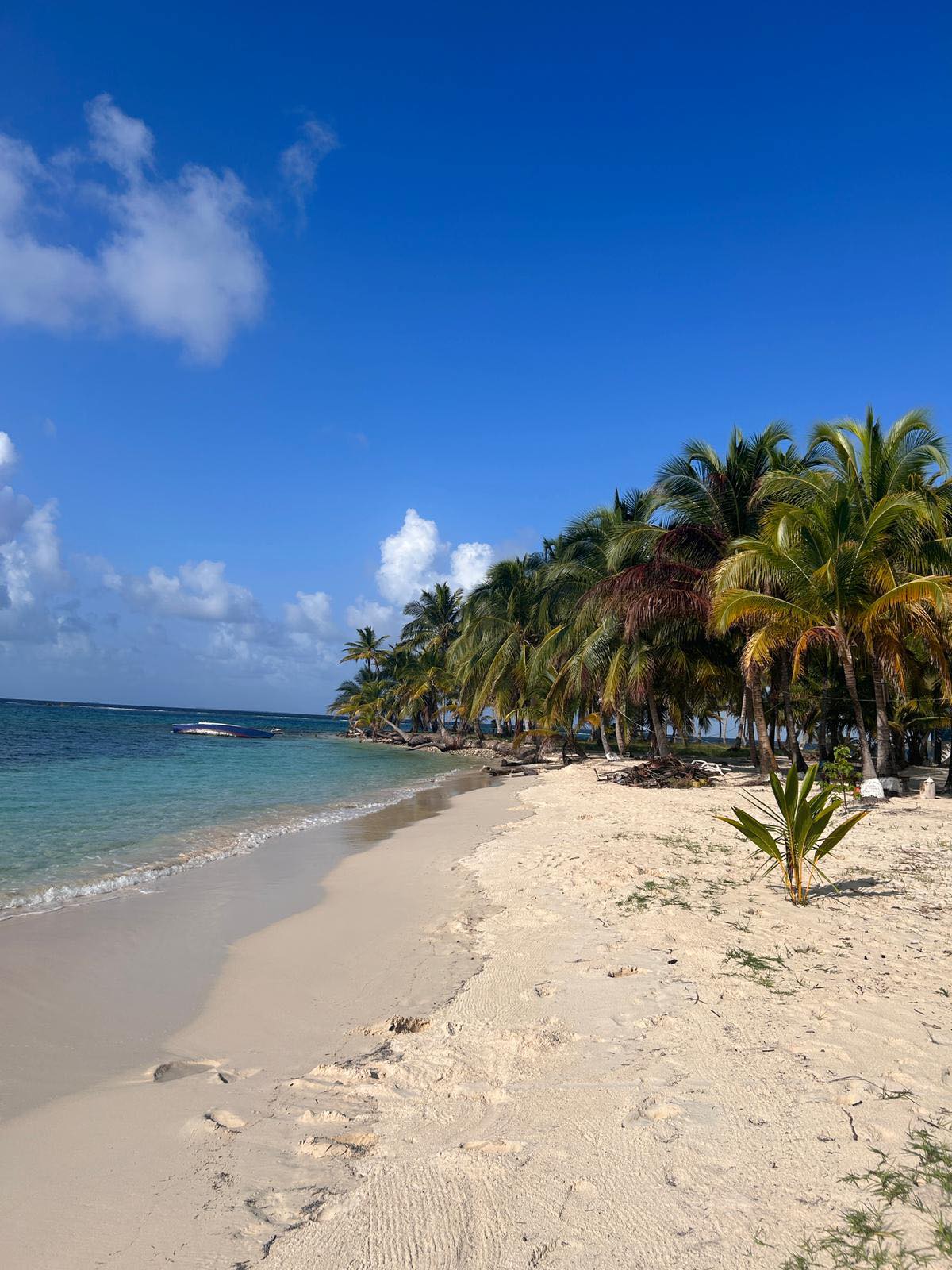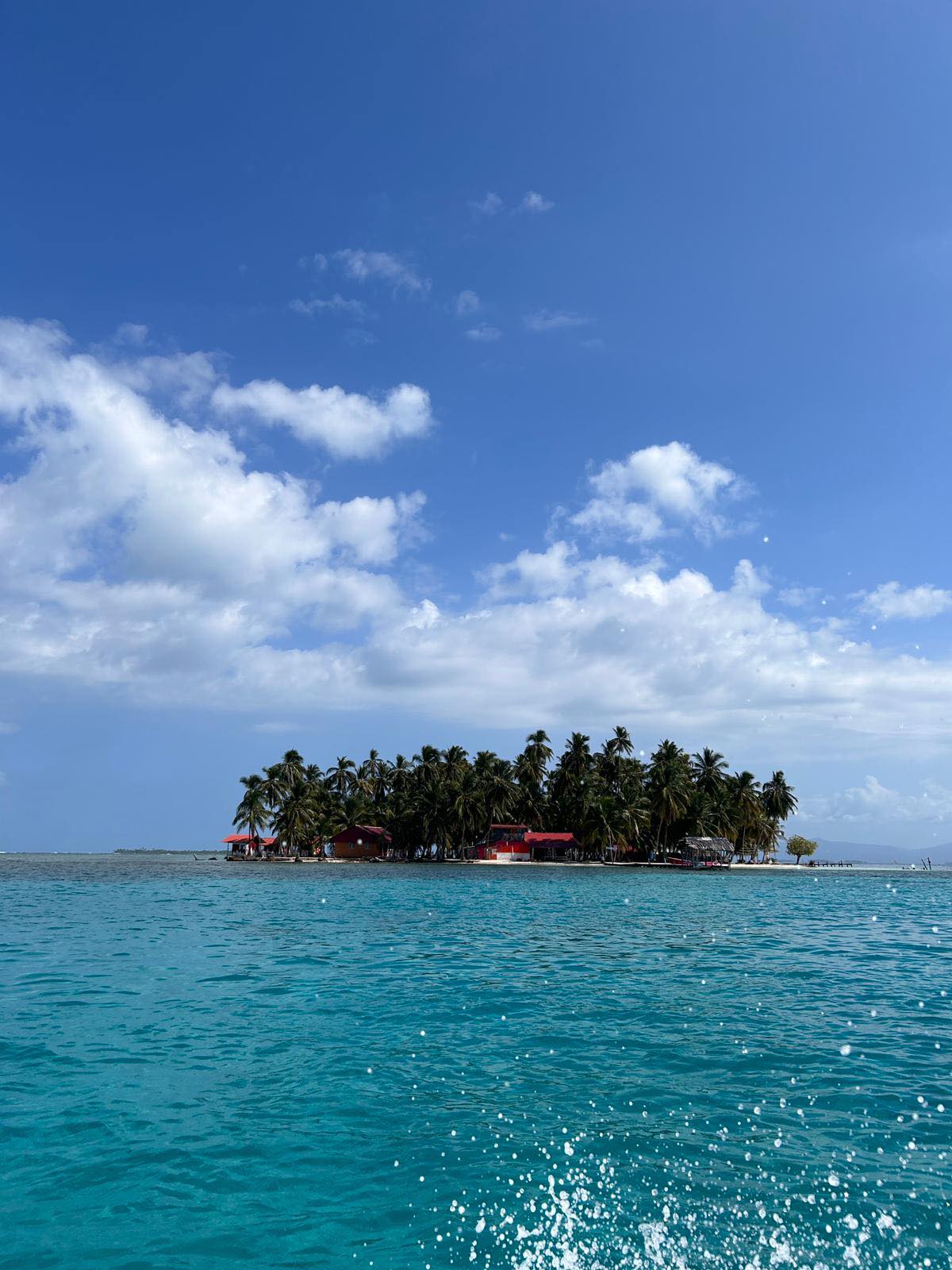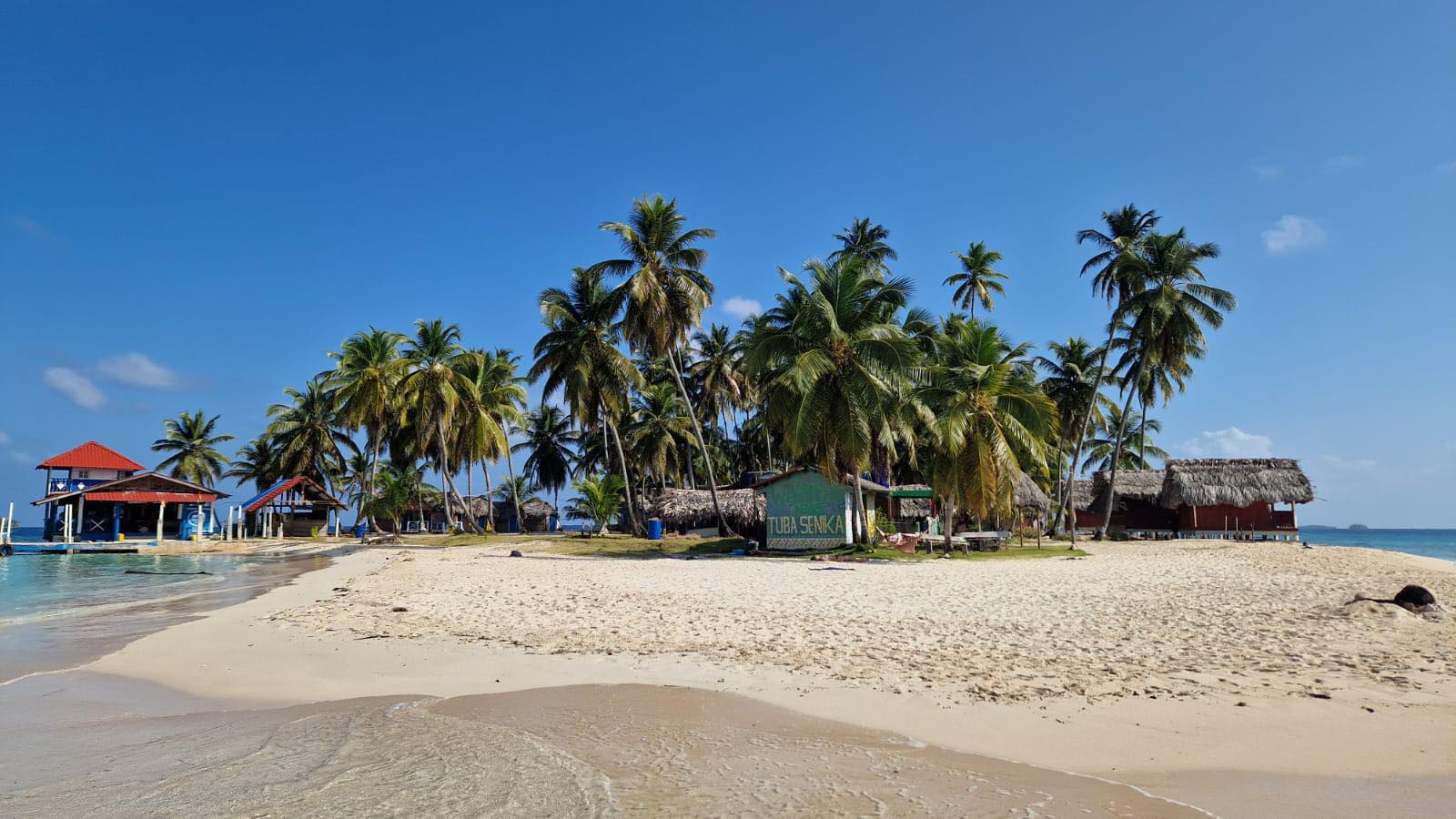In the Caribbean Sea, just off the coast of Panama, sit the San Blas islands, home to the Guna indigenous peoples. Consisting of 350 coral reefs, which constitute approximately 50 habitable independently owned villages, they have been the home of the Guna for nearly 300 years. After gaining the islands' independence following the 1925 revolution with the Panamanian state, the Guna have maintained a degree of political, economic and cultural autonomy by utilising their geographic isolation. However, predictions state that by 2050, nearly all of the 30,000 Guna who populate the island will be environmentally displaced, as it is forecast that the majority of the San Blas will be swallowed by a rising ocean. My research intended to understand how these predictions are perceived by a group with histories of anthropogenic forced displacement due to the process of empire and the ongoing ruptures of colonialism and capitalist systems. Human stories and localised accounts are susceptible to being lost and consumed by scientific descriptors such as the Anthropocene and the focus on future predictions, which often monopolies climate change discourses. Thus, I intended to bridge the gap between the abstract realm of science and local interpretations of climate change.
I spent three weeks on the San Blas islands, where I spent my time immersed with a small group of Gunas in Isla Tubasenika. Qualitative data was gathered through non-structured interviews and enriched by participant observation. Following this, semi-structured were conducted following our initial conversations regarding climate change and environmental challenges from the perspective of the Guna. During my time in the San Blas islands, findings challenged the idea of an objective view of the term' climate change'. Initially, my participants were indifferent to talk about 'climate change' as this phrase was perceived to belong to an alienating political realm that did not reflect Guna's knowledge of the environment. The term' climate change' for those on Isla Tubsaenkia has been experienced through outside actors entering the San Blas and notifying the Guna of future apocalyptic predictions, rather than the term fostering mutual knowledge exchange regarding environmental challenges.Additionally, the prospect of displacement did not trigger the same immediacy of catastrophe that narratives like the Anthropocene articulate. Those on Isla Tubasenika viewed future relocation as reflecting Guna's history of forced migration and displacement, which reconfigures the contemporary climate crisis in the temporal location of empire and colonialism. Overall, funded travel gave me great insight into how the Anthropocene is comprehended and experienced in a local setting. This enriched my knowledge and caused me to reassess the contemporary epoch of anthropised planetary warming while suggesting the Anthropocene needs to be deconstructed to incorporate historical narratives like those of the Guna.


